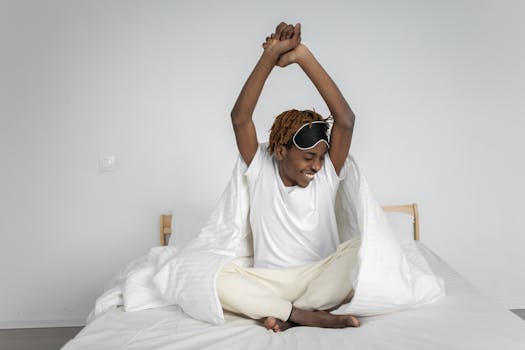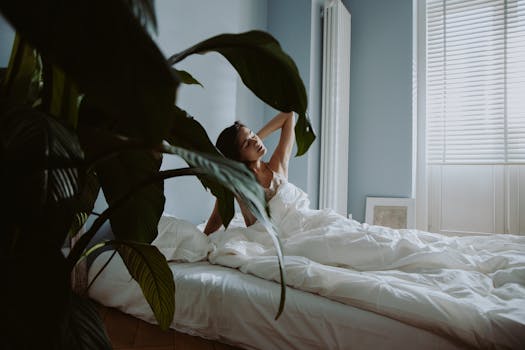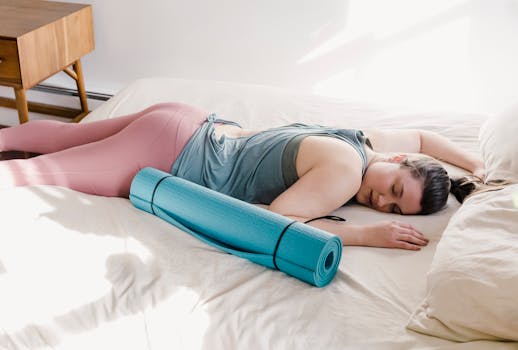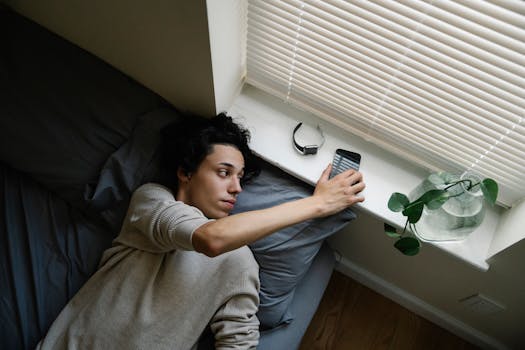
“
Creating a Balanced Sleep Routine for Better Rest
Focus Keyword: Creating a Balanced Sleep Routine

Creating a balanced sleep routine is essential for better rest and overall well-being. A good night’s sleep can help improve concentration, boost the immune system, and increase energy levels. In this article, we will discuss the importance of a sleep routine and provide tips on how to create a balanced sleep routine for better rest.
Why is Sleep Important?

Sleep is a vital component of our daily lives, and it plays a crucial role in our physical and mental health. During sleep, our body repairs and regenerates damaged cells, builds bone and muscle, and strengthens our immune system. Sleep also helps to improve cognitive function, including attention, memory, and problem-solving skills.
What is a Sleep Routine?

A sleep routine, also known as a bedtime routine, is a set of activities that you perform before going to bed to help you relax and prepare for sleep. A sleep routine can include activities such as reading a book, taking a warm bath, practicing meditation or yoga, or listening to soothing music.
Benefits of a Sleep Routine

A sleep routine can have numerous benefits, including:
- Improved sleep quality: A sleep routine can help signal to your body that it’s time to sleep, leading to better sleep quality and duration.
- Increased relaxation: A sleep routine can help you relax and reduce stress, making it easier to fall asleep and stay asleep.
- Better time management: A sleep routine can help you establish a consistent sleep schedule, which can help you manage your time more effectively.
- Improved physical health: A sleep routine can help regulate your body’s internal clock, which can help improve physical health, including weight management, blood sugar control, and cardiovascular health.
Tips for Creating a Balanced Sleep Routine

Here are some tips for creating a balanced sleep routine:
- Set a consistent sleep schedule: Go to bed and wake up at the same time every day, including weekends.
- Create a bedtime routine: Engage in relaxing activities before bed, such as reading a book, taking a warm bath, or practicing meditation or yoga.
- Make your sleep environment comfortable: Make sure your bedroom is dark, quiet, and cool, and invest in a comfortable mattress and pillows.
- Avoid stimulating activities before bed: Avoid activities that can interfere with sleep, such as watching TV, using electronic devices, or engaging in intense exercise.
- Get morning sunlight: Exposure to natural light in the morning helps regulate your circadian rhythms, which can help improve sleep quality.
Conclusion

Creating a balanced sleep routine is essential for better rest and overall well-being. By establishing a consistent sleep schedule, creating a bedtime routine, and making your sleep environment comfortable, you can improve the quality of your sleep and wake up feeling rested and refreshed.
Additional Tips

Here are some additional tips for creating a balanced sleep routine:
- Avoid caffeine and nicotine before bed: Both caffeine and nicotine can interfere with sleep, so it’s best to avoid them for at least a few hours before bedtime.
- Try progressive muscle relaxation: This technique involves tensing and relaxing different muscle groups to help you relax and fall asleep.
- Use a sleep mask or earplugs: If you have trouble sleeping due to light or noise, consider using a sleep mask or earplugs to help block out distractions.
- Get regular exercise: Regular exercise can help improve sleep quality, but avoid intense exercise within a few hours of bedtime.
Sleep Routine Examples

Here are a few examples of sleep routines that you can try:
- Read a book before bed: Choose a book that’s not too stimulating, and aim to read for at least 30 minutes before bed.
- Take a warm bath: Add some relaxing essential oils, such as lavender or chamomile, to help you unwind.
- Practice meditation or yoga: Try some gentle stretches or meditation techniques to help you relax and prepare for sleep.
- Listen to soothing music: Choose some calming music, such as classical or nature sounds, to help you relax and fall asleep.
See more:
https://www.sleepfoundation.org/
https://www.healthline.com/
https://www.mayoclinic.org/



